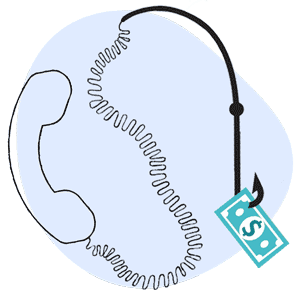Insurance Company of the West
ICW NATIONAL DATA
ICW NATIONAL EDI GRADE
For all electronic bills (e-bills) submitted to workers’ compensation payers (also known as claims administrators), daisyBill monitors the Electronic Data Interchange (EDI) transactions to evaluate each payer’s EDI performance.
When a payer fails to process e-bills properly, providers face avoidable administrative burdens—undermining the efficiencies that e-billing is designed to achieve and making it harder to care for injured workers.
The EDI Grade reflects a payer’s compliance across four EDI components: 837, 277, 277 STC, and 835. Each component is weighted based on the level of administrative work required when the payer fails to meet EDI standards. These weighted scores are combined to calculate the overall EDI Grade, as shown in the table.
ICW NATIONAL EDI DATA
To support claims administrators in improving EDI compliance, daisyBill tracks key EDI benchmarks that reveal where protocol breakdowns are creating administrative burdens for workers’ comp providers:
837 Sent: Measures the volume and percentage of electronic bills (837s) submitted by providers to the claims administrator.
277 Acknowledgment (ACK) Receipt: Assesses whether the claims administrator sends timely and accurate electronic acknowledgments confirming receipt of e-bills—and whether those bills are correctly accepted or rejected.
835 Explanation of Benefits (EOB) Receipt: Evaluates whether the claims administrator delivers accurate and detailed electronic adjudication responses, including payment information or denial explanations.
By monitoring this data, daisyBill enables claims administrators to pinpoint breakdowns in their EDI processes that result in unnecessary friction for providers, ultimately helping improve billing efficiency and provider satisfaction.
837 e-Bill Sent
daisyBill transmits workers’ compensation e-bills and appeals to ICW using the X12 837 Electronic Data Interchange (EDI) standard.
When ICW fails to accept these e-bills, daisyBill resorts to non-EDI methods—such as fax, email, or mail—to submit paper bills for processing.
The table below displays the frequency with which ICW accepts e-bills sent via the X12 837 EDI standard, as well as the frequency of paper bills submitted due to ICW’s failure to accept providers’ e-bills.
277 Acknowledgement (ACK) - Timeliness
When ICW receives an e-bill, it is expected to return a 277 Acknowledgment (277 ACK) to the provider. This electronic response confirms whether the bill was:
Accepted for adjudication (processing), or
Rejected due to formatting, validation, or other submission errors.
The 277 ACK is a critical part of the EDI workflow, as it verifies that the e-bill was received and passed initial validation.
The table shows how often ICW sends 277 ACKs to daisyBill clients within two working days, after three or more working days, or fails to send them at all.
277 Acknowledgement - Erroneous e-Bill Rejections
daisyBill monitors and evaluates ICW’s 277 Acknowledgment (277 ACK) responses to e-bills based on the following criteria:
277 ACK Accept: Confirms that the e-bill was accepted for payment adjudication.
277 ACK Reject: Indicates that the e-bill was rejected, accompanied by an STC Category and STC Code that explain the reason for the rejection.
277 Reject Error – Invalid STC Category/Code: The rejection includes an STC Category and/or STC Code that is either invalid or not permitted under the standard.
277 Reject Error – Valid Injury Claim: daisyBill aggregated payment data indicates that the e-bill was incorrectly rejected because the claims administrator previously processed and paid another bill linked to the same injury claim.
277 Reject Error – Prior ACK Accept Sent: The e-bill was incorrectly rejected because the claims administrator previously sent a 277 ACK accepting the e-bill.
277 Reject Error – Improper Appeal Rejection: An appeal request was incorrectly rejected.
These 277 ACK criteria provide critical insight into the accuracy and reliability of ICW’s e-bill processing, highlighting both proper handling and improper rejections of e-bills and appeals.
835 Explanation of Benefits (EOB) Receipt
The electronic Explanation of Benefits (EOB), transmitted using the X12 835 EDI standard, provides detailed information about the adjudication of an e-bill and can be automatically posted to the corresponding e-bill. This EOB includes data on payments made, adjustments applied, or reasons for denial of billed services.
daisyBill tracks the following metrics related to 835 EOBs sent by ICW:
835 Posted: Confirms that an electronic EOB was received electronically and successfully posted to the e-bill.
835 Balance Errors – Posted: Indicates that the posted electronic EOB contained payment balance discrepancies.
835 Late Receipt – Posted: Indicates that the electronic EOB was received after the regulatory payment timeframe had elapsed.
835 Missing: No electronic EOB was received after submission of the e-bill.
835 Invalid – Unpostable: Identifies instances where the electronic EOB contained incorrect or incomplete information, preventing it from being posted.
The table below presents an analysis of ICW’s electronic (835) EOB responses based on these criteria.
Although daisyBill makes every effort to ensure our information is accurate, we assume no responsibility or liability for any errors or omissions in the content of this site, directory, or blog. The information contained in this site is provided on an "as is" basis with no guarantees of completeness, accuracy, usefulness or timeliness. All data on this website is subject to change without notice to improve function, reliability, design, or otherwise. Visitors to this website should take all steps necessary to ascertain that information you receive from this website is correct and has been verified.
